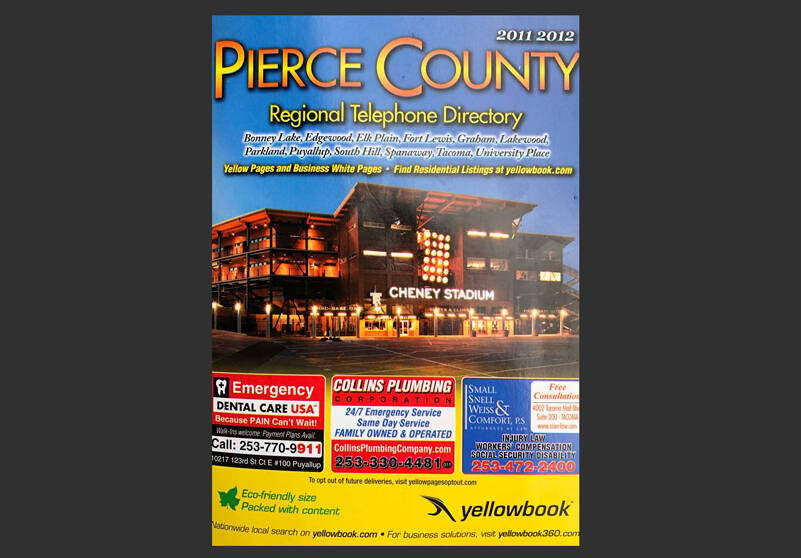By Morf Morford, Tacoma Daily Index
What’s a television? What’s a land line? What’s a check? What’s a phone book?
It seems like everywhere I go, I run into some reminder of the obsolete, never-encountered-before technology that I take for granted and is a puzzle, or even (sometimes) a marvel to a younger generation.
In my basement, for example, is one of those primary features of almost every North American home for most of the 20th Century; a phone with a long, curly line connected to the handset.
These were standard equipment for most kitchens for a generation. Or two. Or three. But not now.
My eleven year old grand daughter saw this phone recently and had no idea what it was or how it would be used. And, of course, she had probably never heard a dial tone in her life.
But that’s not all
My wife prefers to write checks at grocery stores. Almost every time she does, the cashier stops either with questions or to show co-workers how to process a check – if they should ever encounter one.
As I was cleaning out a forgotten corner of my attic I found a barely used set of encyclopedias from 1990.
My grand daughter, firmly entrenched in the streaming generation, had no idea how to find anything in an encyclopedia. The concept of information being organized alphabetically seemed clumsy and barbaric to her.
I grabbed one from the box to show her. It was the “T” volume. I happened to open it up to a diagram of a television. It was a 1990s era boxy cathode ray tube television set that only received “broadcast” network signals.
I did not even mention “broadcast TV” to her.
It was all too obviously NOT a “smart” TV.
Even the idea of a print encyclopedia was a marvel to her.
What does “look it up” mean?
To her Google-framed mind-set, the idea that information even could be organized was a revelation.
Library card catalogs are, of course, long gone.
But along with them went our ability to find adjacent, but not necessarily related information or sources.
Those online search bars show us what we are looking for, but card catalogs, or even nearby books on a shelf, show us, or even surprise us with what we did not know we were looking for.
In the same way, maps show us an outline of where we are far better than any GPS directions.
We might consider ourselves techies, but many of us have lost our ability to make our way around in the literal (non-virtual) world.
It used to be said that the World War II generation had seen the greatest changes. Yes, many of them grew up without electricity or indoor plumbing, and saw transportation from the Model -T to the moon landing, but young people inhabit a world qualitatively different.
And it’s not just technology
In more ways than could be counted, the world has changed dramatically in the past few years.
And it is not just the machines and technology we use on a near-daily basis.
My eleven year old grand daughter, for example, has probably been to as many same-sex weddings as “traditional” opposite-sex weddings. For most of her life, she has only seen a president well over 70 years old.
We, the generation of her grandparents, grew up with news anchors who assured us that we were informed and that we, if not all of humanity, was progressing and living better than the generation before – or maybe even every generation before.
And that everything was under control.
Her generation didn’t get any of those messages. The news headlines she sees are shrill and dire. Even her entertainment tends toward the bleak and dystopian.
Fame and fortune are found, not by hard work or talent, but by Tik-Tok style viral discovery and promotion.
“If you are not online, you don’t exist” is the one rule for this generation.
Social media sites are not just “platforms” – they hold, or at least promise, recognition and prosperity.
And the web, as a whole, has the potential to steal, subvert or manipulate everything from bank accounts to national security and power grids.
Our personal data is the common currency, the cost of entry into the cyber-economy.
Privacy, even individual identity, is hard-won, or not even possible.
Yes, the “Greatest generation” saw major changes, but they were on something like a continuum.
The generation born after 2010 or so inhabit a world previous generations would not even recognize.
“There’s an app for that” was a tag line a few years ago. But somehow I’m getting the impression that the best things in life don’t have apps.






